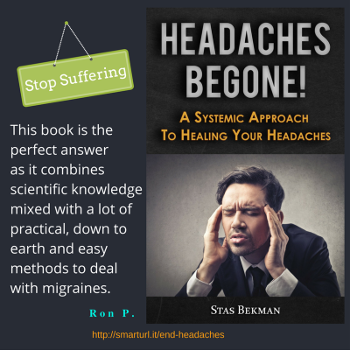Chapter Six. Putting The Rules Of Conduct Into Practice. 1. Difficulty Of Rational Conduct. - Obstacles In Our-Selves. - Obstacles We Meet In The World About Us
Description
This section is from the book "Reflections On Life", by Alexis Carrel. Also available from Amazon: Reflections on life.
Chapter Six. Putting The Rules Of Conduct Into Practice. 1. Difficulty Of Rational Conduct. - Obstacles In Our-Selves. - Obstacles We Meet In The World About Us
At the moment it is highly necessary that everyone should put the rules of conduct into practice in his daily life; that he should submit to a freely accepted, but strict discipline. Are we modern men capable of such an effort? Have we the intelligence and energy to give up the habits we find so pleasant and convenient? To behave rationally in the mental and material milieu created by modern society demands positive heroism. As I have written elsewhere, "Humanity has become master of its destiny. But will it be capable of using the immense forces of science to its own profit? To begin a new stage of growth, it is obliged to remake itself. And it cannot remake itself without suffering. It is at the same time the marble and the sculptor. To take on its true face, it must strike splinters out of its own substance with great blows of the chisel." Can we still make such an effort? Have we the intelligence and the strength to break the chain of the habits which bind us? We love freedom and ease; any constraint is painful to us. We have had neither the wisdom nor the courage to submit ourselves to laws. The 130 same thing has occurred at the end of all civilizations. When man frees himself from the necessities of primitive life by his intelligence and his inventions, he does not think of replacing the discipline imposed by nature. In ancient Greece and Rome, for example, the asceticism of the Stoics was only practiced by a negligible part of the population. The disciples of Zeno, Epictetus and Marcus Aurelius remained always very few. It is true that, in spite of its severity, Christian morality had a prodigious success; it gave Western civilization its particular structure. Though its influence was powerful, it did not resist the change in physical conditions and mental climate brought about by the progress of science and technology. As soon as rebellion becomes materially possible, man revolts against all discipline.
It is in our own selves that the greatest obstacles to the practicing of rules of conduct arise. It is extremely difficult for man to understand those things which, in his heart of hearts, he does not wish to understand. He instinctively closes his intelligence to the knowledge of any facts which would oblige him to give up anything he finds pleasurable. For example he refuses to admit that it is dangerous to gorge himself with wine or beer, to smoke incessantly, to He, to slander his neighbor and to make himself odious to others by his selfishness and rudeness. One of the worst disorders of the spirit is to seek only those aspects we find agreeable both in ourselves and in the things about us. It is fatal to confuse the artificial needs created by our milieu with the fundamental needs of our nature; to pursue the immediate and illusory advantage instead of the distant and real one. We have no desire to see ourselves as we are; we are blinded by vanity and self-complacency. We can see no necessity to discipline ourselves and to change our way of behavior. Of course one cannot avoid work; one cannot earn money or acquire comfort without imposing certain rules on oneself.
But modern man finds it much easier to see the need for restraint when it is a question of satisfying his vanity or his passions than when it comes to acquiring health, intelligence or goodness. A man who willingly submits to the necessary training for winning a race may refuse to make any effort to train himself to be truthful or to fight his churlishness or his egoism. It almost seems as if our intelligence becomes paralyzed as soon as we apply it to ourselves.
Rational conduct is also hindered by the adverse forces of the environment in which we live. Our reawakening will have to come about in the very conditions which have brought about our decline. The moral climate of the community and the spirit of its institutions have not changed nor will they change until we have transformed them. Thus we must begin to practice the rules of conduct in an antagonistic milieu.
Society never fails to erect the barrier of its opposition against all nonconformists. In all ages, heretics have been burned. Today as hitherto, inventors die in want and prophets are stoned. The fact is that those who obey the laws of life will inevitably bring about the downfall of the present order. Naturally they are regarded as enemies by the great mass of the mediocre who live in ignorance, stupidity and corruption. Above all, they are considered as such by the wily who profit from this corruption, stupidity and ignorance.
At the present moment, we live in a world that is hostile to life. We exist in an environment ill-adapted to the real needs of our bodies and souls; among the crowd which wants above all to continue the regime of go-as-you-please, laziness and amoralism.
The enormous cataclysm of the world war has not recalled us to a sense of the real. Like a storm cloud, a strange madness darkens our intelligence. The absurd revolt of civilized people against the laws of life continues to spread. There is the same conflict between modern society and the rational conduct of life as there was between Roman society and Christian morality in the fourth century. Eating, drinking, chariot-racing and gladiatorial combats were the only preoccupations of the Romans of the Decadence. Our own are identical and the civilization built up by science and technology is disintegrating like the civilizations of the past. Like the Romans, we do not realize the necessity to recreate ourselves. Would a return to more primitive conditions of life and to the hardships caused by cold and hunger remove some of the obstacles which prevent us from carrying out the rules of conduct?
Continue to:




